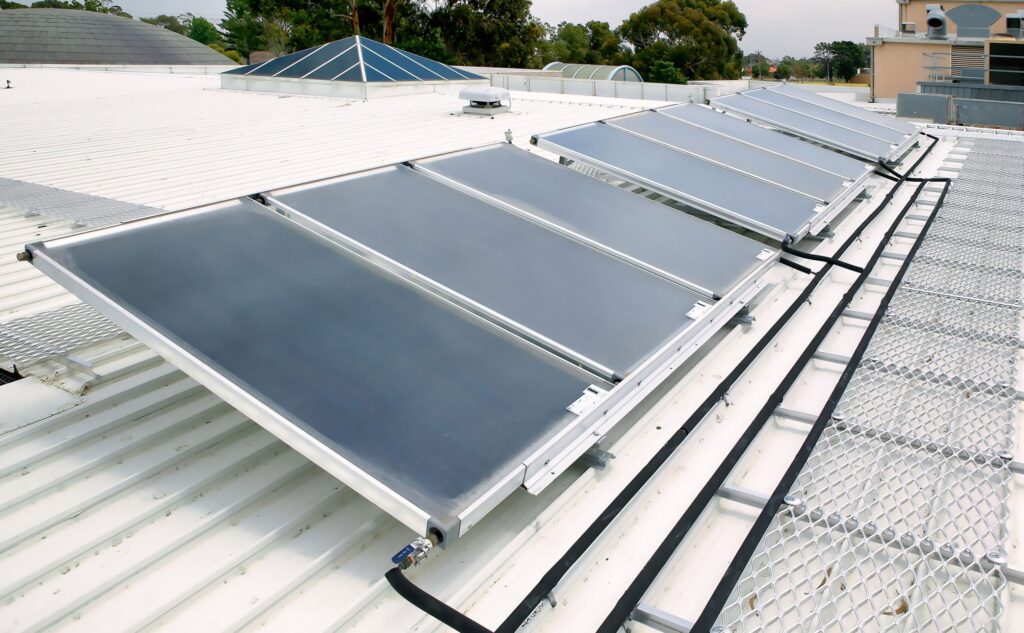As homeowners, having hot water has become a basic necessity for our daily activities. Hot water is essential to our life because it is required for many tasks, including cooking great meals, taking a pleasant shower, cleaning, and doing laundry. Making educated decisions requires having a clear understanding of the expenses associated with establishing or updating a hot water system.
When considering buying one, it’s crucial to consider all the factors that affect the cost of a hot water system. These are a few of the kinds of design, installation, energy efficiency, and continuing maintenance costs. You can estimate the expense involved and establish financial arrangements by thoroughly evaluating these components. So let’s get started and examine the crucial procedures needed to determine how much a hot water system would cost.
Determine the Size of Your Hot Water System
It is critical to examine your specific needs before calculating the cost of a hot water system. Begin by assessing your household’s hot water usage trends, including the number of residents, bathrooms, and hot water-requiring gadgets. Consider peak demand periods as well as the ideal water temperature.
Consider your location’s climate as well as the accessible energy sources. Different hot water systems use a variety of energy sources, including electricity, gas, and solar power. Each alternative has its own installation and running costs, as well as the potential for long-term savings.
Understanding your hot water system needs allows you to narrow down the options and select a system that fulfills your demands while staying within your budget.
Conduct Price Research on Hot Water System
After identifying your requirements, it’s time to look into hot water system prices. Visit manufacturers’ websites, local suppliers, and specialized hot water system dealers. They frequently include information about various systems, such as their characteristics, capacity, and costs.
You should compare rates and make an informed decision about which hot water system fits your budget by completing careful research.
Think about hot water system installation costs
It is critical to factor in installation expenses when evaluating the hot water system installation cost. Some homes may choose to install the procedure themselves, but it’s usually best to hire a professional plumber to ensure the job is done safely and well.
The installation cost might change based on things like how hard it is to install, what kind of hot water system is used, and any other plumbing or electrical work that needs to be done.
It’s also critical to ask about any warranties or guarantees the installer or manufacturer provides. These can provide additional peace of mind while potentially saving you money on future repairs or replacements.
Take into account maintenance and operating costs
Aside from the initial purchase and installation costs, it is critical to consider a hot water system’s continuing maintenance and operating costs. Different types of systems have different maintenance requirements and levels of energy efficiency.
For example, gas and electric systems may require routine maintenance, although solar systems typically require less. Understanding the maintenance costs and needs can provide you with a more accurate view of the long-term expenditures connected with your preferred hot water system.
Consider the operating expenditures as well, such as energy consumption and electricity bills. Energy-efficient equipment can cut your monthly expenses significantly over time, more than covering the original outlay.
Why is it necessary to consider the size and cost of a hot water system?
Considering the size and cost of a hot water system is crucial for several reasons. Firstly, it ensures that the system has adequate capacity to meet the hot water demands of a household or building. An appropriately sized system optimizes efficiency and comfort by supplying enough hot water without wastage or shortages.
Secondly, the system’s physical size is essential, particularly in spaces with limited room, as it ensures the system fits within the available space without causing obstructions or requiring expensive modifications. Thirdly, evaluating the cost allows for selecting a system that aligns with budgetary constraints, including upfront purchase costs and installation expenses. Furthermore, the system’s size and cost are highly related to its energy efficiency. Choosing the appropriate system size optimizes energy consumption while lowering long-term operational expenses.
Lastly, considering the lifecycle costs provides a holistic view regarding maintenance and potential replacement costs over time. By considering both size and cost, one can make an informed decision that results in a well-functioning, energy-efficient, and cost-effective hot water system.
Summary
There are various processes for calculating the cost of a hot water system. You can make an informed decision corresponding to your budget and tastes by calculating your hot water system needs, researching prices, considering installation costs, and factoring in maintenance and running charges.
Remember to seek advice from credible sources, such as Hot Water Solutions for more information and direction. With careful thought and research, you can locate the ideal hot water system that gives the needed comfort and efficiency while reducing the cost impact.
Frequently Asked Questions
- Why is determining the size of a hot water system important?
The size of a hot water system is critical since it ensures that the system can meet your household’s or building’s hot water demands. A properly sized system maximises efficiency and comfort by supplying adequate hot water without waste or shortages.
- Should I install a hot water system myself or hire a professional?
While some homeowners may be able to install a hot water system themselves, it is typically suggested that a professional do so. Plumbing and electrical work are involved in installing a hot water system, which can be complicated and require specialised skills. Hiring a skilled plumber guarantees that the installation is done correctly and properly, reducing the danger of leaks, malfunctions, or damage. Furthermore, expert facilities frequently include warranties or guarantees, which provide peace of mind and significant cost savings in case of any problems.
- How long does a typical hot water system last?
The longevity of a hot water system varies based on numerous aspects, including system type, installation quality, maintenance practices, and water quality. Traditional tank-based hot water systems typically last 10 to 15 years. Some systems, though, can live even longer if properly maintained. Tankless or on-demand hot water systems have a longer lifespan, frequently lasting 20 years or more. Flushing the tank, checking for leaks, and replacing worn-out components can all assist in extending the life of the system. To maximise the lifespan of your hot water system, examine the manufacturer’s warranty and maintenance recommendations.
- Why should I consider maintenance and operating costs?
Maintenance and operating costs are essential to consider because they contribute to the overall expenses of a hot water system. Different types of systems have varying maintenance requirements and energy efficiency levels. By understanding the maintenance costs and energy consumption associated with your chosen system, you can make an informed decision and anticipate the long-term expenditures.


